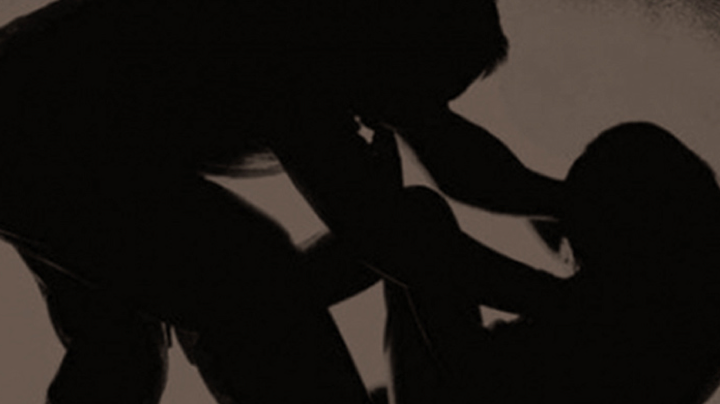
Rape simply means “forcefully having sex with someone against her or his wish or will, usually by overpowering physically/violently, or the use of weaponry”. Rape can include: vaginal penetration (through the vagina), anal penetration (through the anus), oral penetration (through the mouth).
In Myanmar, more often than not, girls are more victims of rape than boys. However, recent trends have shown that boys can also be violated sexually. There’s also a tendency that most acts of rape are unreported, largely because the victim feels ashamed, is held back by self-stigma and/or afraid of social stigma or indeed, feels that the violator will not be punished.
How do I know if I have been raped?
The Myanmar law prescribes that rape is committed if a man has sexual intercourse with a woman under circumstances falling under any of the five following descriptions :--
First.—Against her will.
Second.—Without her consent.
Thirdly.—With her consent, when her consent has been
obtained by putting her in fear of death or of hurt.
Fourthly.—With her consent, when the man knows that
he is not her husband, and that her consent is given
because she believes that he is another man to whom she
is or believes herself to be lawfully married.
Fifthly.—Penetration is sufficient enough to
constitute the sexual intercourse necessary to the
offence or rape.
Explanation.—Sexual intercourse by a man with his
own wife, the wife not being under thirteen years of
age, is not rape.
Rape can includes, for example, penetration of any part of the body, such as the ears, mouth or anus by a sexual organ, such as a penis or penetration by a foreign object, such as a knife or stick, in the anal or vaginal opening. The perpetrator and victim can be a man or a woman.
What are the effects of rape?
Rape can have harmful and lasting consequences for victims, families, and communities. Rape can lead to both physical and psychological trauma. There are different types of emotional and psychological effects of being raped as well as the accompanying physical and bodily injuries incurred by a victim.
The physical wounds from a rape could include bruises, pain, irritation and soreness in the vaginal area, bleeding, and possible tears in the vaginal-rectal region from forced penetration. Other resulting health consequences include getting pregnant, contracting Sexually Transmitted Infections (STIs) and/or HIV.
How can I avoid being raped?
Rape is not primarily your responsibility to prevent, so there are no absolute actions that can keep you safe. But there are simple measures/tips that can help you keep safe and feel safer including
- Drinking moderately and avoid getting drunk especially when in the company of untrusted/unfamiliar friends/people
- Refusing gifts and/or avoiding visits from or to strangers alone.
- Avoiding late night outings especially in the company of untrusted friends and in unfamiliar environments
- Avoid taking dark, lonely roads/streets or corners.
Though it is largely opined that dressing or acting “provocatively” is an excuse to be raped, it is definitely not true. The truth is that a rapist acts not in response to your actions but rather to his own lowly thoughts and lack of control over sexual urges. That is why some rapists assault little children that could never have dressed nor acted provocatively.
Never feel guilty after being raped, the rapist is the guilty one.
What can I do if I have been raped or sexually assaulted?
While many survivors feel guilty or blame themselves for the rape, rape is never your fault. You are not responsible for the actions of others and it is not your fault that someone decided to hurt you.
Here are some tips on what to do if you have been raped or sexually assaulted:
- Get yourself to a safe place.
- It is a good idea to contact someone you know and trust; a friend or family member and narrate the incident. This can be difficult, but can be a helpful support system.
- Do not wash or bathe yourself or wash your clothes just yet. If you do, you run the risk of washing away all physical evidence of the rape. Doing this would get rid of blood, semen, saliva, bruises or bites that could be used as evidence of the rape.
- Dash straight to a health provider for medical care as soon as you can. Some health providers can collect physical evidence that can be used for the legal process. If the first health provider cannot do this, you can request a referral to another facility once you have received urgent medical care. That facility is likely to find physical evidence as required by the law that can be linked to the rapist should you decide to press charges or take up the case to the police.
- Upon medical examination, the doctor can provide the necessary precautionary measures to prevent unwanted pregnancy, HIV and STIs. You need to receive Post-exposure Profylaxis (PEP) to prevent HIV infection within 3 days (72 hours) and emergency contraception to prevent pregnancy also within 3 days and up to 5 days for highest effectiveness.
- You have been through a really difficult experience. Seek support from trusted family and friends. Literature and pamphlets on rape can also help you to recover.
How can I move past the incident?
Rape victims can suffer a significant degree of physical and emotional trauma during the rape, immediately following the rape and over a considerable time period after the rape.
Acknowledge the Incidence: You may feel like denying it, forgetting about it and returning to your life as it used to be before the rape. Well, we can’t hide from our emotions and feelings. The hurt, the pain, trying to change or reverse the events leading to the rape….wishing that you could play the tape in reverse...wishing you did not walk that road...that you did not leave home or visit him that day...wishing you could wipe it all off and have a fresh new beginning....
But what has happened has happened. Acknowledge it so you can begin to take deliberate steps towards healing.
Ultimately, while the answer to this question is elusive, all you can do is keep putting one foot in front of the other, be prepared to fall down on occasion, and take a recovery break from time to time where you’re not going to counseling, reading about rape, or journaling about what happened. Put it aside periodically, then pick it up again when your batteries are charged and you’re ready for another painful surge forward. If you haven’t taken the first step yet, consider reading this your first step and give yourself a pat on the back.
